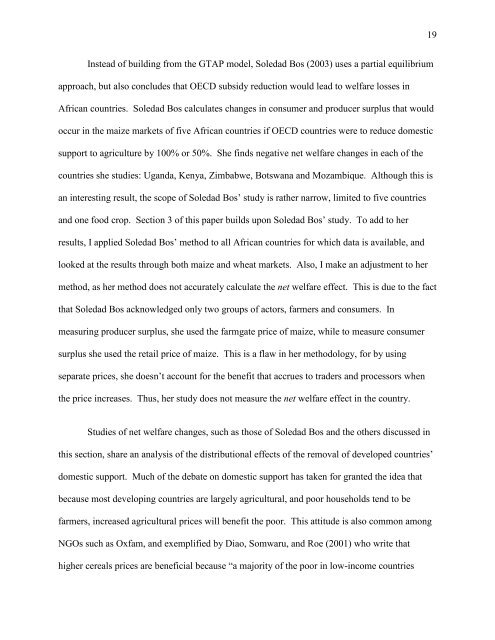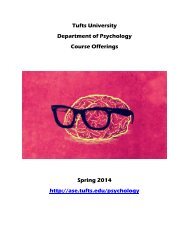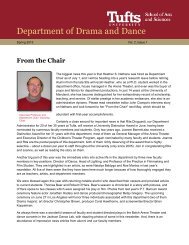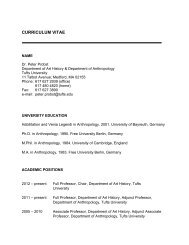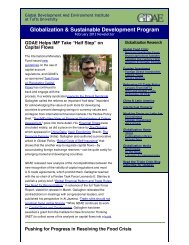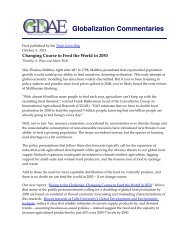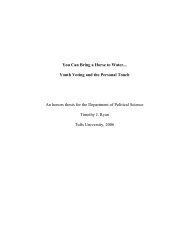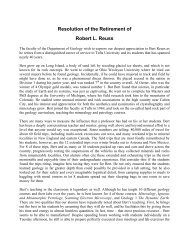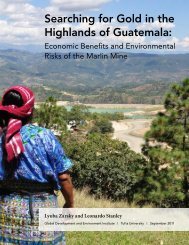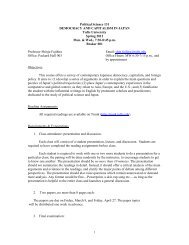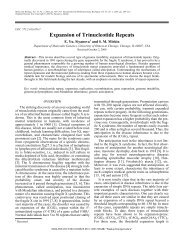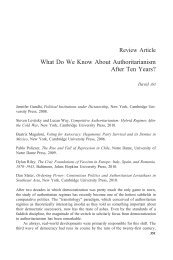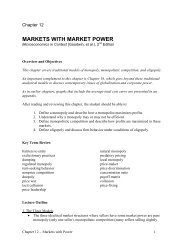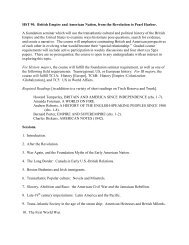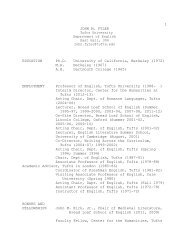The Impact of a New WTO Agricultural Agreement ... - Tufts University
The Impact of a New WTO Agricultural Agreement ... - Tufts University
The Impact of a New WTO Agricultural Agreement ... - Tufts University
Create successful ePaper yourself
Turn your PDF publications into a flip-book with our unique Google optimized e-Paper software.
19<br />
Instead <strong>of</strong> building from the GTAP model, Soledad Bos (2003) uses a partial equilibrium<br />
approach, but also concludes that OECD subsidy reduction would lead to welfare losses in<br />
African countries. Soledad Bos calculates changes in consumer and producer surplus that would<br />
occur in the maize markets <strong>of</strong> five African countries if OECD countries were to reduce domestic<br />
support to agriculture by 100% or 50%. She finds negative net welfare changes in each <strong>of</strong> the<br />
countries she studies: Uganda, Kenya, Zimbabwe, Botswana and Mozambique. Although this is<br />
an interesting result, the scope <strong>of</strong> Soledad Bos’ study is rather narrow, limited to five countries<br />
and one food crop. Section 3 <strong>of</strong> this paper builds upon Soledad Bos’ study. To add to her<br />
results, I applied Soledad Bos’ method to all African countries for which data is available, and<br />
looked at the results through both maize and wheat markets. Also, I make an adjustment to her<br />
method, as her method does not accurately calculate the net welfare effect. This is due to the fact<br />
that Soledad Bos acknowledged only two groups <strong>of</strong> actors, farmers and consumers. In<br />
measuring producer surplus, she used the farmgate price <strong>of</strong> maize, while to measure consumer<br />
surplus she used the retail price <strong>of</strong> maize. This is a flaw in her methodology, for by using<br />
separate prices, she doesn’t account for the benefit that accrues to traders and processors when<br />
the price increases. Thus, her study does not measure the net welfare effect in the country.<br />
Studies <strong>of</strong> net welfare changes, such as those <strong>of</strong> Soledad Bos and the others discussed in<br />
this section, share an analysis <strong>of</strong> the distributional effects <strong>of</strong> the removal <strong>of</strong> developed countries’<br />
domestic support. Much <strong>of</strong> the debate on domestic support has taken for granted the idea that<br />
because most developing countries are largely agricultural, and poor households tend to be<br />
farmers, increased agricultural prices will benefit the poor. This attitude is also common among<br />
NGOs such as Oxfam, and exemplified by Diao, Somwaru, and Roe (2001) who write that<br />
higher cereals prices are beneficial because “a majority <strong>of</strong> the poor in low-income countries


